Films with theme "Documentary films about racism", sorted by revenue
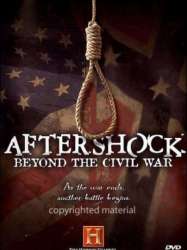
Origin USA
Genres Documentary
Themes Films about racism, Documentary films about racism, Documentary films about law, Documentary films about war, Documentary films about historical events, Documentaire sur une personnalité, Political films
The film is about the harsh period of Reconstruction after the American Civil War in rural southern states. The period was marked with a number of deadly race riots and angry insurgencies in the south. The movie focuses on the rise of the Ku Klux Klan from a six-member group of veterans of the Confederate Army into a terrorist organization. It tells of the battles between Ku Klux Klan First Grand Wizard Nathan Bedford Forrest and Governor of Tennessee William Gannaway Brownlow, the Memphis and New Orleans Massacres, the Lowry War in Robeson County, North Carolina, as well as Arkansas' conflict with the clan. The footage consists of interviews with top historians, historical content, and recreated segments as told by narrator Mike Hodge. Director David Padrusch makes a cameo appearance as a 'Freedmen Bureau Agent' who is executed by the Ku Klux Klan in the film.
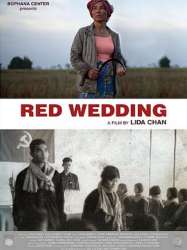
Red Wedding (2012)
, 58minutesDirected by Guillaume Suon, Lida Chan
Genres Documentary
Themes Films about racism, Films about sexuality, Rape in fiction, Documentary films about racism, Documentary films about law, Documentary films about war, Documentary films about historical events
Between 1975 and 1979, at least 250,000 Cambodian women were forced into marriages by the Khmer Rouge. Sochan was one of them. At the age of 16, she was forced to marry a soldier who raped her.

Ethnic Notions (1987)
, 56minutesDirected by Marlon Riggs
Origin USA
Themes Films about racism, Documentary films about racism, Documentary films about law, Documentary films about historical events, Documentaire sur une personnalité
Actors Esther Elizabeth Rolle

Love Inventory (2000)
, 1h30Genres Documentary
Themes Films about families, Films about racism, Films about religion, Documentary films about racism, Documentary films about law, Documentary films about war, Documentary films about historical events, Documentaire sur une personnalité, Documentary films about religion, Political films, Films about Jews and Judaism, Documentary films about World War II
After the death of their parents, Filmmaker David Fisher feels that his family has grown apart and that his siblings are focused on their careers and relationships with their spouses and children. Fisher believes that a search for their sister, who was allegedly taken from their parents at birth, will help them bond.
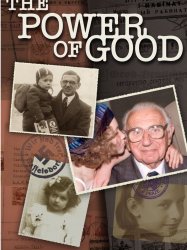 , 1h4
, 1h4Directed by Matej Mináč
Genres Documentary, Historical
Themes Films about racism, Films about religion, Documentary films about racism, Documentary films about law, Documentary films about war, Documentary films about historical events, Documentaire sur une personnalité, Documentary films about religion, Political films, Films about Jews and Judaism, Documentary films about World War II
Actors Karel Reisz
Partez à la rencontre de Nicholas Winton, véritable héros d'avant-guerre. Jamais considéré comme tel, cet homme a pourtant sauvé 669 enfants à la veille de la Seconde Guerre mondiale. Dans la capitale tchécoslovaque, alors qu´il se préparait pour des vacances au ski, le jeune Nicholas Winton va organiser une extraordinaire opération de sauvetage d'enfants juifs menacés par les nazis.
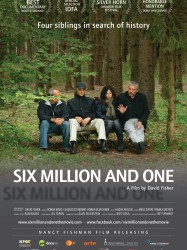
Six Million and One (2012)
, 1h33Genres Documentary
Themes Films about racism, Films about religion, Documentary films about racism, Documentary films about law, Documentary films about war, Documentary films about historical events, Documentaire sur une personnalité, Documentary films about religion, Political films, Films about Jews and Judaism, Documentary films about World War II
Joseph Fischer's memoir was discovered only after his death. His children refused to confront it, except for David, the filmmaker, for whom it became a compass for a long journey. When David found it unbearable to be alone in the wake of his father's survival story and in his struggle not to lose his sanity, he convinced his brothers and sister to join him in the hope that this would also contribute to releasing tensions and bring them as close as they used to be. His siblings, for their part, couldn’t understand why anyone should want to dig into the past instead of enjoying life in the present. The journey eventually leads the Fishers into the dark depths of the B8 Bergkristall tunnels, part of the Austrian KZ Gusen II concentration camp, where their father endured forced labor during the Holocaust. Illuminated only by flashlights, they seek meaning in their personal and family histories and undergo surgical and revealing discussions about family, survival and individualism only to come to the realization that they are unable to fully understand their father's past and the events that haunted him. Joseph Fischer's last couple of weeks at Gunskirchen concentration camp, were an inhuman experience that blocked his writing. In order to find out what his father failed to describe about Gunskirchen's liberation David located veterans of the 71st Infantry Division who liberated the camp. The elderly soldiers are still haunted and traumatized by the horrific sights they came across when entering the camp. Through their journey, the Fishers become emblematic of the entire second generation who are still grappling with the experience of their survivor parents.

Plot for Peace (2013)
, 1h24Origin South africa
Genres Documentary
Themes Films set in Africa, Films about racism, Documentary films about racism, Documentary films about law, Documentary films about historical events, Documentary films about politics, Political films
In the middle of the 80', Jean-Yves Ollivier, a French businessman working in Southern Africa, decides to use his network and the trust he inspires to the leaders of the countries, in order to help bringing peace and destroy the apartheid regime.

They Were Not Silent (1997)
, 30minutesGenres Documentary
Themes Films about racism, Films about religion, Films about the labor movement, Documentary films about racism, Documentary films about law, Documentary films about war, Documentary films about historical events, Documentaire sur une personnalité, Documentary films about politics, Documentary films about religion, Political films, Films about Jews and Judaism, Documentary films about World War II

Voices of the Children (1998)
Genres Documentary
Themes Films about children, Films about racism, Films about religion, Documentary films about racism, Documentary films about law, Documentary films about war, Documentary films about historical events, Documentaire sur une personnalité, Documentary films about religion, Political films, Films about Jews and Judaism, Documentary films about World War II

Screamers (2006)
, 1h29Origin USA
Genres Documentary
Themes Films set in Africa, Films about racism, Documentary films about racism, Documentary films about law, Documentary films about war, Documentary films about historical events, Documentaire sur une personnalité, Documentary films about politics, Political films
Actors Shavo Odadjian
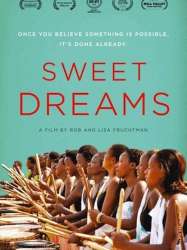
Sweet Dreams (2012)
, 1h26Directed by Lisa Fruchtman
Origin USA
Genres Drama, Documentary, Historical, Musical
Themes Films set in Africa, Films about music and musicians, Films about racism, Documentary films about racism, Documentary films about law, Documentary films about war, Documentary films about historical events, Documentary films about music and musicians, Documentaire sur une personnalité, Documentary films about politics, Musical films, Political films
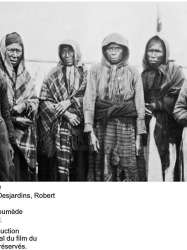
The Invisible Nation (2007)
Genres Drama, Documentary
Themes Films about racism, Documentary films about racism
Dans ce long métrage documentaire, le duo de réalisateurs derrière L'erreur boréale et Trou Story, Richard Desjardins et Robert Monderie, raconte l'histoire de la nation algonquine du Québec et dénonce ses conditions de vie actuelle.

ID–WithoutColors (2012)
, 29minutesThemes Films about racism, Documentary films about racism, Documentary films about law, Documentaire sur une personnalité

Earth Made of Glass (2011)
, 1h28Origin USA
Genres Documentary
Themes Films set in Africa, Films about racism, Documentary films about racism, Documentary films about law, Documentary films about war, Documentary films about historical events
In 2008, Paul Kagame, as President of Rwanda, had released the findings from an investigation into the massacre which had occurred there in 1994, when fighting began in the Eastern Congo at Rwanda's western border. The influence of French military interference in Rwanda plus the Belgian occupation are explained, in relation to the long-time feud between the Hutus and Tutsis, Rwanda's two main ethnic groups. Meanwhile, survivor Jean-Pierre Sagahutu, whose family had died during the violence, seeks to track down the man who had murdered them. Sagahutu eventually finds the culprit and decides what to do next.
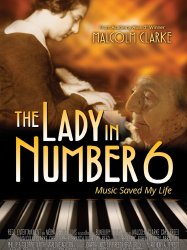 , 39minutes
, 39minutesDirected by Malcolm Clarke
Origin Canada
Genres Documentary
Themes Films about music and musicians, Films about racism, Films about religion, Documentary films about racism, Documentary films about law, Documentary films about war, Documentary films about historical events, Documentary films about music and musicians, Documentary films about religion, Musical films, Political films, Films about Jews and Judaism, Documentary films about World War II
Actors Malcolm Clarke
 Connection
Connection